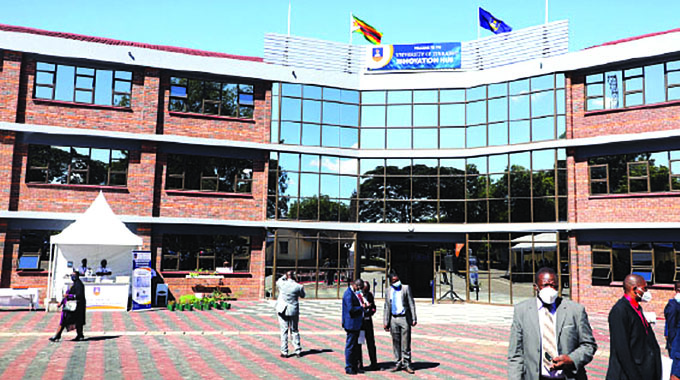UZ launches innovative solar barn to help reduce deforestation
Our #TECH_Newser covers ‘news of the day’ #techNewserTechnology content.
UZ launches innovative solar barn to help reduce deforestation
Originally reported on www.herald.co.zw
The Herald
Sifelani Tsiko
Agric, Environment & Innovations Editor
A University of Zimbabwe engineer has built a prototype solar-powered tobacco barn that could easily be scaled up to reduce the huge amounts of firewood used by tobacco farmers and impact on the environment.
Engineer Nelson Shati, a researcher in the Department of Industrial Engineering and Mechatronics, developed the barn that uses solar thermal energy and electric energy to cure up to 100kg or a bale of tobacco in six or seven days.
“There is a strong push for tobacco farmers to move away from using firewood for tobacco curing,” said Eng Shati, in a report capturing his arguments for developing the solar powered barn.
“This prompted me to develop an alternative renewable energy system. This initiative was to design and construct a prototype tobacco barn which uses solar thermal and auxiliary tobacco curing systems.”
Eng Shati designed the barn that has a cross section of a tobacco leaf at 68cm length and 40cm width. This prototype has a roof rail that sustains tobacco mass 50kg.
Globally, there is an aggressive push to force tobacco producing countries to adopt tobacco curing processes that use energy with less adverse environmental impact as firewood and other fossil fuels are not sustainable.
The UZ innovator believes strongly that the use of solar thermal powered tobacco barns will help Zimbabwe to attain Sustainable Development Goal number 7 which requires countries and businesses to accelerate the use of affordable, reliable and sustainable renewable energy.
“There is extensive tree cutting by tobacco farmers for firewood use as curing fuel,” he said. “Deforestation threatens biodiversity and sustainable tobacco production. So, I was motivated to design and construct a sustainable tobacco curing hybrid system of solar thermal and non-wood auxiliary energy.”
The barn has two air inlets, one connecting the solar collector where there is sufficient heating from the sun and one directly from the blower into the heater element when its cloudy and there is insufficient sunshine.
The flat plate solar collectors can generate heat of between 30 degrees Celsius and 80 degrees Celsius, while the electric heating system can reach 80 degrees Celsius.
The prototype barn was on display at the on-going University of Zimbabwe Research Innovation and Industrialisation Week.
It has been tested successfully and the project now intends to acquire the solar thermal collector and requisite control instrumentation in order to conduct a full test of tobacco curing using solar air heater and the auxiliaries.
Eng Shati said there was potential to mass produce barns that were cheaper and durable.
“We stand on the beacon of transforming the tobacco industry in Zimbabwe and abroad,” he said.
Energy experts say solar photovoltaic technology to power the barn does not require the day-to-day maintenance or operation costs of other renewable technologies and it produces a predictable amount of electricity, resulting in a consistent financial return on the investment.
The solar barn aims to alleviate these problems and provide farmers with a cost-effective way to cure tobacco as well as engage in renewable energy generation.
A few years ago, another local engineering firm, Mamsen Engineering, developed an energy-efficient Twin-Turbo tobacco curing barn that sought to cut energy bills for tobacco farmers and reduce the impact on the environment.
The Twin-Turbo Barn was successfully tested at Kutsaga Research Station in the capital run by the Tobacco Research Board.
The innovative technology has since been certified as a next generation energy-saving sustainable tobacco curing system.
Zimbabwe desperately needs sustainable tobacco curing processes that are environmentally friendly, energy efficient and capable of reducing the fuel requirements for curing tobacco.
Energy-efficient curing barn could easily ensure the survival of Zimbabwe’s tobacco industry, which is under immense pressure to ensure smallholder farmers reduce the cutting down of trees used for curing processes.
In addition, it could result in economic savings, benefit industry value chains and consumers through enhanced product quality.
“This is quite an important project as the country is desperate to develop new technologies that are energy efficient and promote sustainable development,” said Tafadzwa Masekesa, a student researcher in Department of Industrial Engineering and Mechatronics.
Tobacco curing — the act of drying tobacco in readiness for the market — has led to the destruction of large tracts of forests in the country.
Zimbabwe, the world’s fourth largest producer of flu-cured tobacco, has more than 90 000 registered growers made up largely of smallholder farmers who rely heavily on wood for curing.
The tobacco industry’s value chain remains one of the country’s largest, employing over two million people.
In the 2017/18 cropping season, tobacco generated up to US$1 billion from 253 million kilogrammes sold through the contract and auction floors.
Zimbabwe sold 186,6 kilogrammes of leaf tobacco worth US$515,9 million in the 2021 marketing season, while at the end of the 2022 marketing season, the country has sold some 187kgs of leaf tobacco worth about US$569 million, according to the Tobacco Industry and Marketing Board.
‘News of the Day’ content, as reported by public domain newswires.
Source Information (if available)
It appears the above article may have originally appeared on www.herald.co.zw and has been shared elsewhere on the internet, repeatedly. News articles have become eerily similar to manufacturer descriptions.
We will happily entertain any content removal requests, simply reach out to us. In the interim, please perform due diligence and place any content you deem “privileged” behind a subscription and/or paywall.
First to share? If share image does not populate, please close the share box & re-open or reload page to load the image, Thanks!



